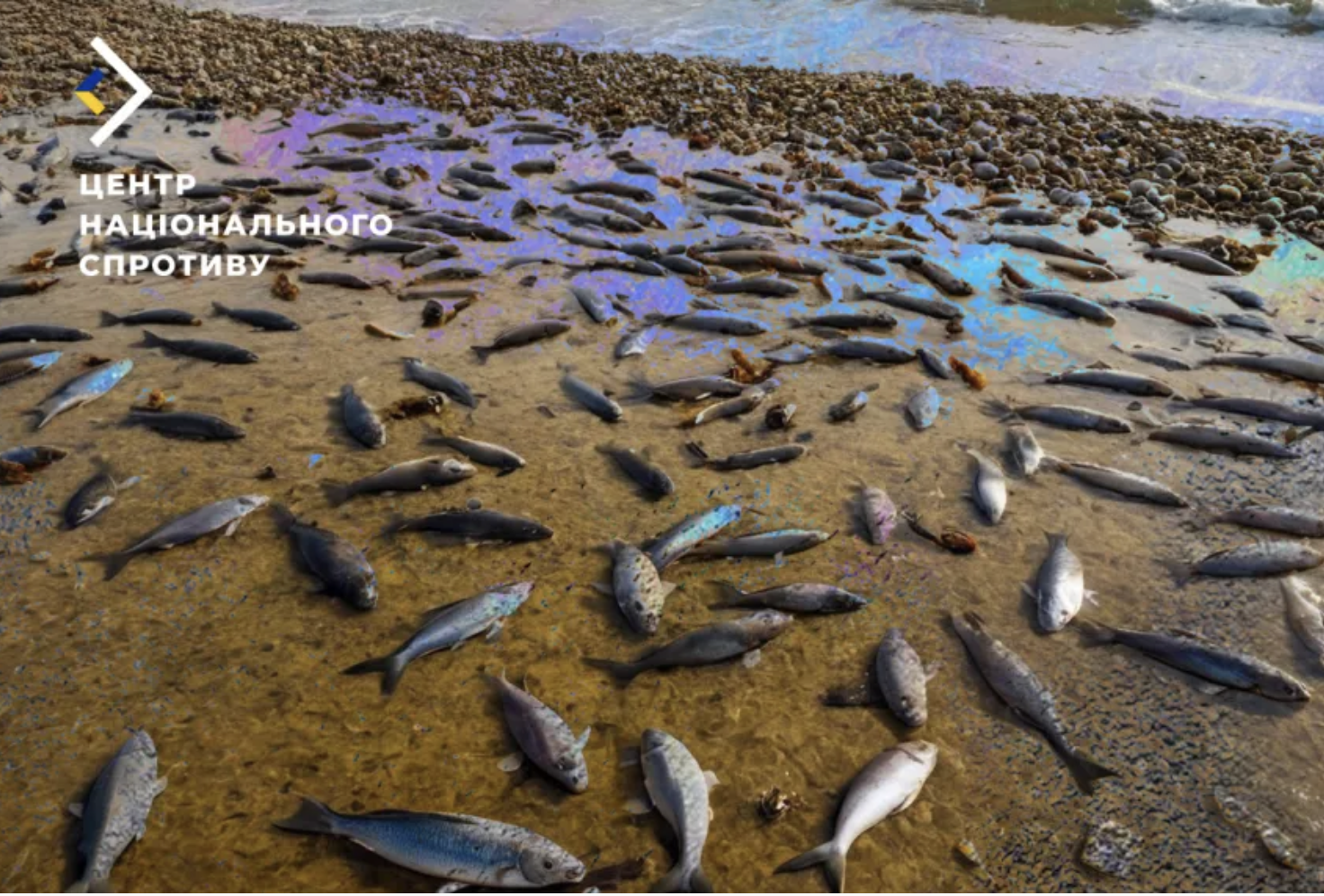A large number of anchovy fish have washed ashore in Russian-occupied Sevastopol in Crimea, according to footage shared by local Telegram channels.
The incident allegedly stems from Russian tanker oil spills in the Black Sea last year.
On 25 February, the Telegram channel Crimean Wind reported that the “cause [of the incident] is unknown” and “Russian authorities remain silent.”
Ukrainian Center for National Resistance has attributed the incident to fuel oil leaking from Russian tankers that sank in the Kerch Strait in 2024.
The organization claims Russian authorities are deliberately downplaying the spill’s environmental impact.
“Instead of taking real actions to mitigate the consequences of the accident, the occupiers claim that ‘there is no threat,'” the Center stated, adding that Russian agencies have issued statements declaring fish from affected waters safe for consumption.
The Center noted that fuel oil poses significant health risks, potentially causing allergic reactions, eczema, or chemical burns upon contact, and warned that natural cleansing of the sea could take up to two decades.
According to Yevhen Khlobystov, an expert from the Crimean Tatar Resource Center, this incident represents “one of the biggest environmental threats since the destruction of the Kakhovka Dam.”
“Most likely, this is the largest spill of fuel oil into the sea in recent decades, and perhaps in the entire history of navigation. The relatively enclosed Black Sea will take many years to assimilate this pollution,” Khlobystov wrote on Facebook.
On 15 December 2024, two Russian tankers, “Volgoneft-212” and “Volgoneft-239,” sustained damage during a storm near the Kerch Strait.
Crew error during difficult weather conditions was reported as a possible cause of the disaster, as was the fact that two vessels were already outdated, with construction dating back to the 1980s.
The tankers reportedly carried approximately 4,300 tons of fuel oil each, though BBC estimates suggest the total could be around 8,000 tons of petroleum products. Russian President Vladimir Putin has stated that 40% of the fuel leaked into the sea.
Environmental consequences have been severe, with reports of fuel oil mixed with seaweed washing up on shores and causing the deaths of dolphins and other marine life.
Experts warn that the ecological consequences could last over two decades, affecting coastal ecosystems and regional economies.
Russian authorities even declared a federal emergency in occupied Crimea and Russia’s Krasnodar oblast in response to the spill.
The contamination has reportedly spread beyond Russian-controlled territories, reaching Ukraine’s Odesa Oblast on the Black Sea shore.
Related:
- Fuel oil from massive Russian tanker spill reaches Ukraine’s shores
- Black Sea needs 20-year recovery from Russian tanker oil spill as contamination spreads
- Oil spill devastates Black Sea: long-term impact expected to last over 20 years
- Storm claims third Russian vessel near occupied Crimea as Greenpeace urges action over oil spill
- Two Russian tankers sink near Kerch strait amid storm (video)




